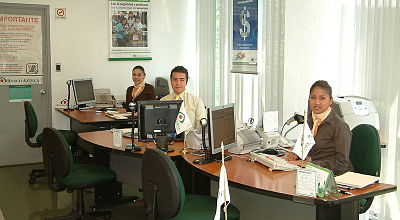Entrepreneur Urges ‘Business as Mission’ Mindset
As Americans gear up to assess their personal wealth and pay their taxes by April 17, a burgeoning movement is challenging Christians in the business community to reconsider how they think about wealth creation from a kingdom perspective.
A longtime technology executive and proponent of the Business as Mission (BAM) movement is urging Christians in business, to think about their own material gain from a biblical perspective, using it to boldly build God’s kingdom.
“When conducting Business as Mission, the primary purpose has to be to expand the kingdom of God,” says Joseph Vijayam, founder and managing director of Olive Technology, a Colorado Springs, Colo.-based information technology services provider. “Profits and an increase of shareholder wealth are an important result of a solid business that is well executed and are essential for the survival of any business, but they need not become the very purpose for existence.”
Owners and managers of BAM enterprises, such as Olive, use business as a force for good. They use profits holistically to also address the spiritual needs of employees, clients and the community, as well as social, economic and environmental needs. Sometimes this objective defies conventional wisdom.
Vijayam recounts an instance in which Olive’s accountant, an orthodox Hindu, fell ill with what appeared to be incurable liver disease: Rather than replace him, he would wait, appeal to his management and staff for prayer, and have the company pay in part for his treatment. Despite initial improvement, the accountant died. Was it worth it?
“We made an investment in kingdom values that the company could afford, and we left the results to time and to God,” says Vijayam.
Since the apostle Paul and his associates manufactured tents to support their ministry, BAM has been a model for ministry. The most recent movement dates back to 2004, when the Lausanne Forum for World Evangelization addressed the role of businesses in mission work, particularly in countries hostile to missionaries. The concept is now integrated into networking operations, books and academic programs at major Christian universities.
Vijayam is himself from a long line of tentmakers. His grandfather and father both served the church in India as they worked as a furniture maker and geologist, respectively. The BAM movement’s influence is felt in the U.S. beyond the books and the networking groups. Vijayam recalls a colleague who left his job at a major U.S. corporation to start a BAM company, because he felt limited in his ability to share his faith. He sees rapid growth of BAM companies overseas, particularly in regions that are hostile to Christianity and where missions are difficult to operate. He also sees more examples of non-Christians being exposed to the gospel through such companies.
“There are times when people came back and said to me, ‘You’ve honored your word,’ or ‘You haven’t charged us in interest when we were unable to make a payment on time,’” Vijayam says. “I can testify that making choices in favor of kingdom principles ultimately pays.”














































